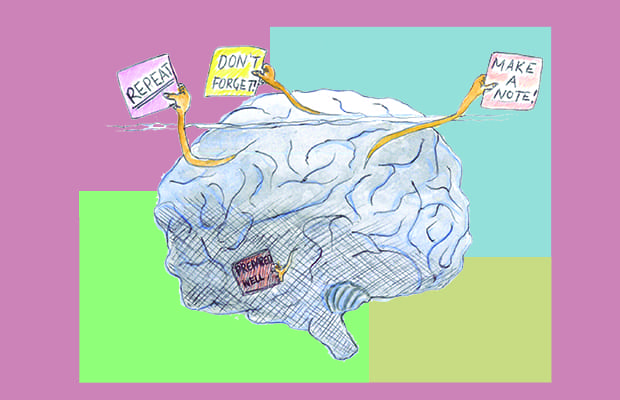We often watch great performers and wonder how it is even possible to be doing so much simultaneously and better yet, under so much pressure. How can a jazz musician, for instance, be adhering to the harmonic structure of a song, all the while improvising their own ideas over the top, as well as listening to the other band members and responding in real time? How does a concert violinist remember an entire thirty-minute concerto? How do they play at a prestissimo speed, yet be watching the conductor and listening to the orchestra at the same time? And how do they even remember where all the notes are?
The idea of automated processes is highly important in all fields, whether it is acknowledged or not. Automated information means that an individual can rely on a wealth of knowledge that they have already acquired, and they can instead utilise their cognitive energy for more difficult processes. For example, a brain surgeon in a critical operation would have automated so many medical processes that they would not have to think about basic processes, but rather about decisions that could mean life or death. The performing arts are, of course, totally different to brain surgery or flying a plane, but performing under pressure, in any field, relies on automated knowledge stored within the subconscious. It seems effortless and we admire their apparent ease in the performance, but rarely do we look at the mental processes beneath.
In a 1966 documentary, Bill Evans describes his journey in playing music — he started as a classically trained pianist who could not play music beyond the score, but he eventually learnt to improvise, becoming one of the greatest pianists in jazz history. Speaking about the tendency of learning musicians to overplay and give off the impression of great expression and expertise rather than studying the material truly, he said “the whole process of learning the facility to play jazz is to take these problems from the outer level in, one by one, and to stay with it at a very intense, conscious concentration level until that process has become secondary and subconscious.” Improvisation itself is heavily reliant on learned practices. Not having that natural facility in jazz, he said, it took him roughly fifteen years to build his ability to the point of being able to be truly expressive.
Acting also demands memory as well as a level of improvisation — although adhering to a written character and a script, a part is only convincing if it appears natural and spontaneous. For this, we need look no further than Sir Laurence Olivier, a towering figure of the British stage and screen in the mid-twentieth century. He insisted on total preparation, and yet he was remembered for delivering lines from Shakespeare so naturally that it seemed as if he were but thinking them. Sir Anthony Hopkins, at one time Olivier’s understudy and mentee, recalls a story of Olivier dreading going on stage to play King Richard III — he suffered from severe stage fright. He played the part but he did not remember much of the performance. Yet it was regarded as one of his best. In the interview, Hopkins relates a similar experience of his own. Olivier was sick and Hopkins, being his understudy, went on for him, “I was terrified. It was like I was on automatic pilot. I got through the show. But I wasn’t really there.” But Olivier would later write in his memoir that Hopkins walked off the stage like a cat with a mouse in its mouth.
These may appear to be romantic tales about the mysteries of performance, as well as irrelevant to most areas of study, but they do serve as testament to the value of deep learning processes over quick memorisation tactics. The apparent ease is not divine talent but rather expertise, the result of intensive preparation. This is typically less discussed and acknowledged in the performing arts, instead attributed to ‘talent,’ either by artists unwilling to confess their efforts or an onlooker’s expression of admiration. The same could be said of those in the sciences: relentless determination reduced to ‘just being smart.’ The psychological principles of preparation and automatic consciousness are not exclusive to geniuses of the past. If nothing else, acknowledging and discussing the extensive preparation of great performers ought to affirm our own capacities.





